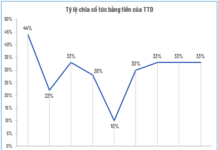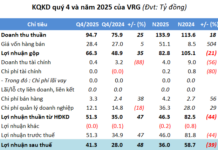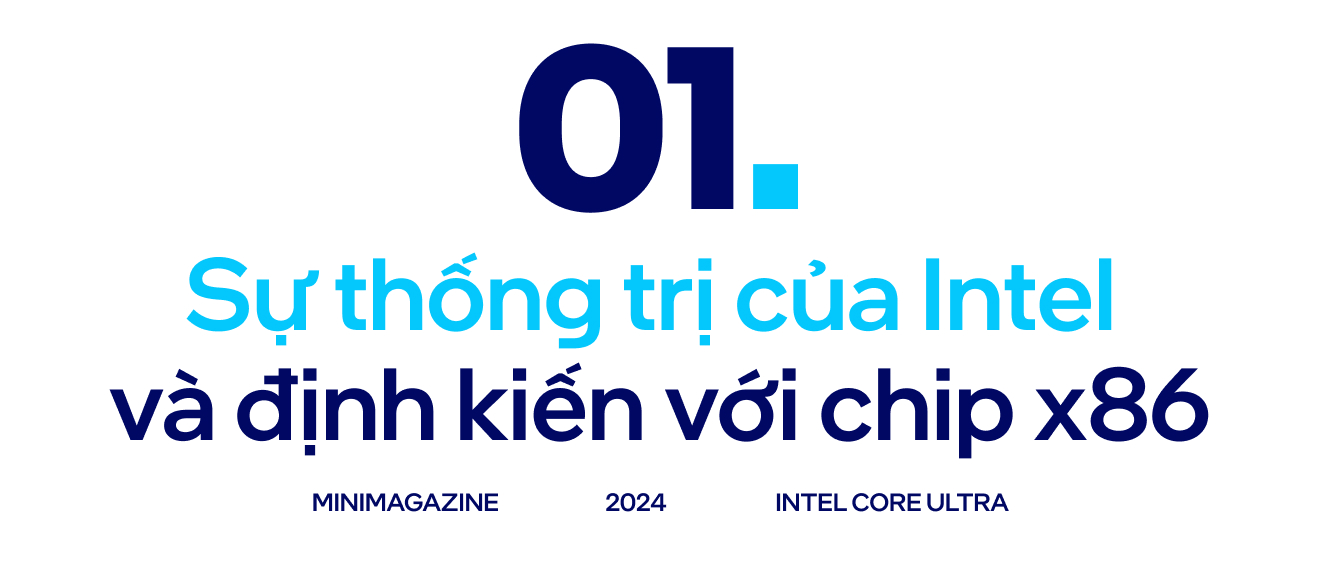
Intel has long been a major player in the microprocessor arena, with its x86 architecture playing a pivotal role in the evolution of personal computing. The company’s previous generations of x86 chips, including the Pentium and Core i3, i5, and i7 series, set the standard for processing power, particularly in handling complex tasks for work and entertainment.
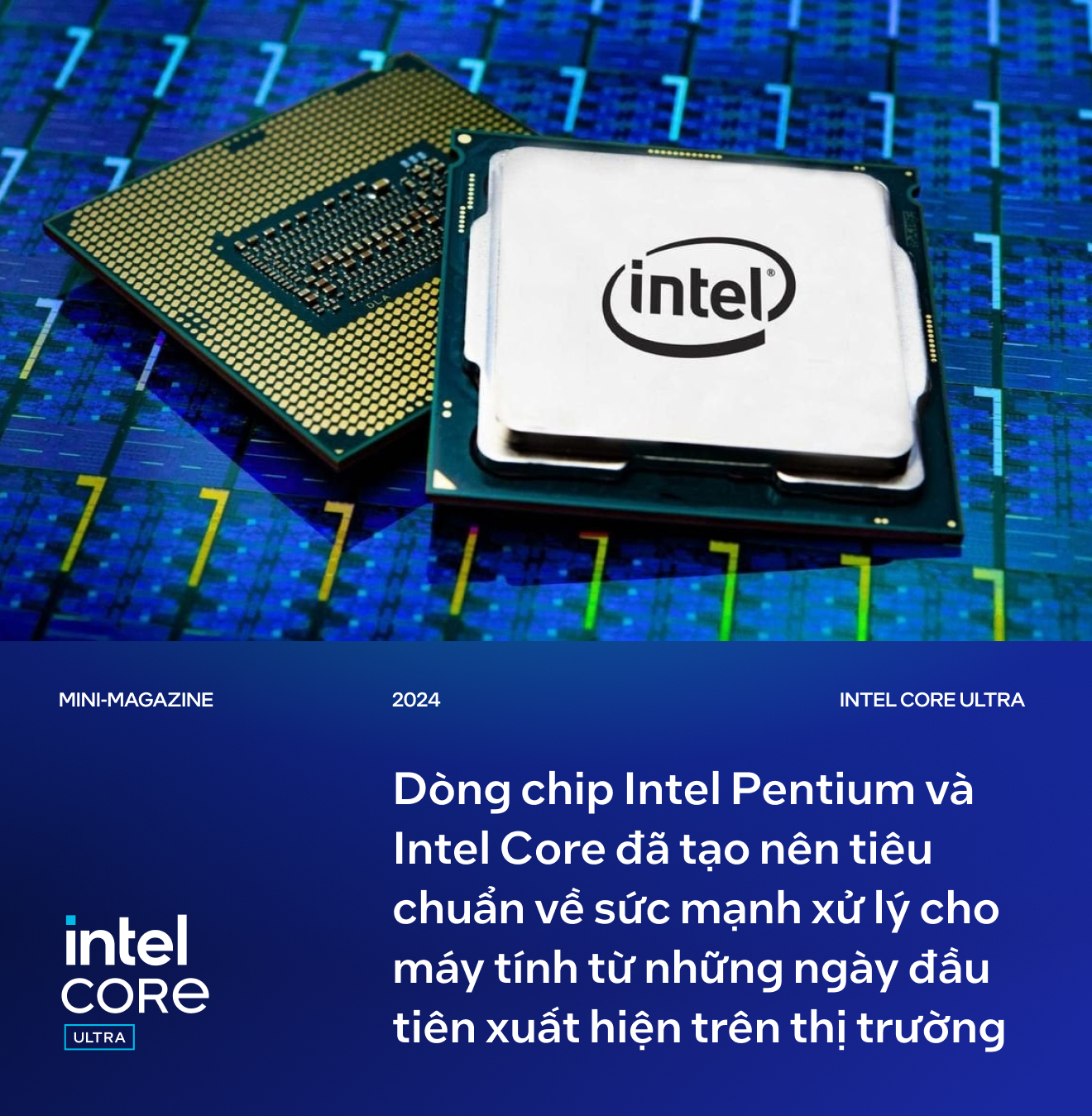
However, Intel’s x86 architecture has also been associated with the perception that these processors are not optimized for power efficiency, especially in mobile devices such as laptops. This has led to concerns among users about short battery life, high operating temperatures, and a general misalignment with the growing preference for lightweight, portable, and energy-efficient devices.
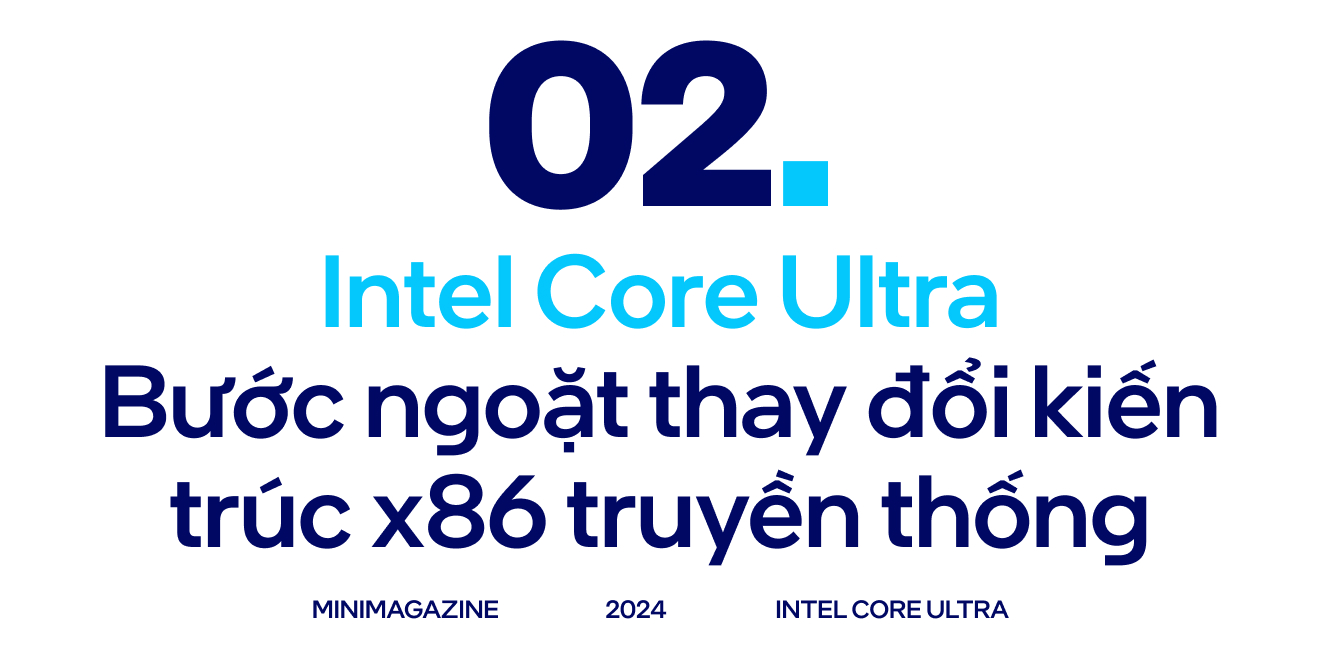
To address the evolving demands of consumers, Intel embarked on a significant transformation in late 2023 with the introduction of the Intel Core Ultra Series 1 processors. This marked a substantial improvement, focusing not only on enhancing performance but also on addressing power consumption issues—a key concern for users in the mobile space.
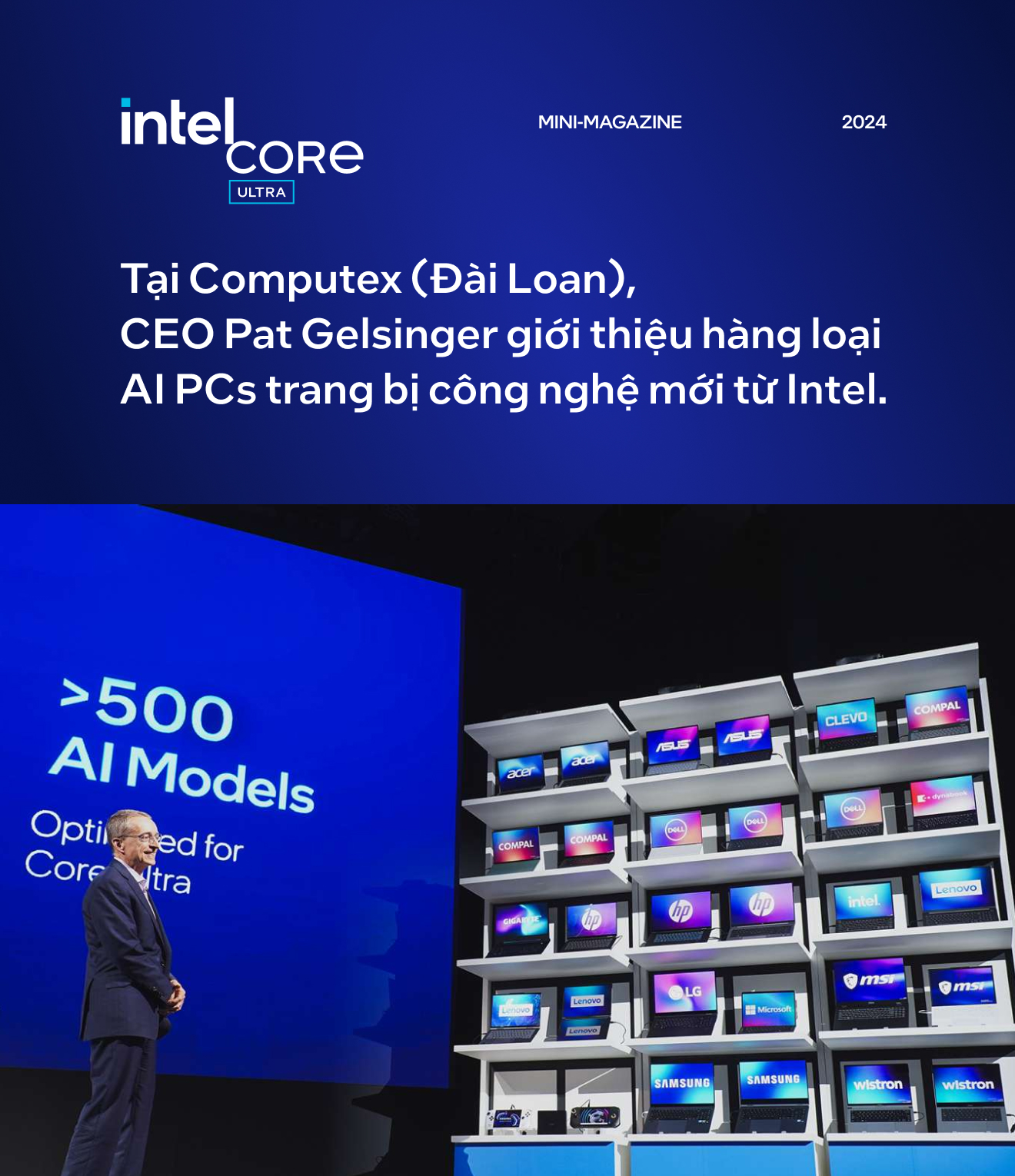
The Core Ultra series strikes a balance between delivering robust performance and energy efficiency. By leveraging high-performance (P-core) and energy-efficient (E-core) cores, laptops can now seamlessly handle demanding tasks while conserving power during lighter usage. Core Ultra is designed to maintain stable performance for everyday tasks, such as word processing and image editing, without excessive power consumption. With impressive power-saving capabilities, the first Core Ultra series delivered noticeable improvements in battery life compared to previous x86 chips, enhancing its competitiveness against ARM-based chips known for their energy efficiency.
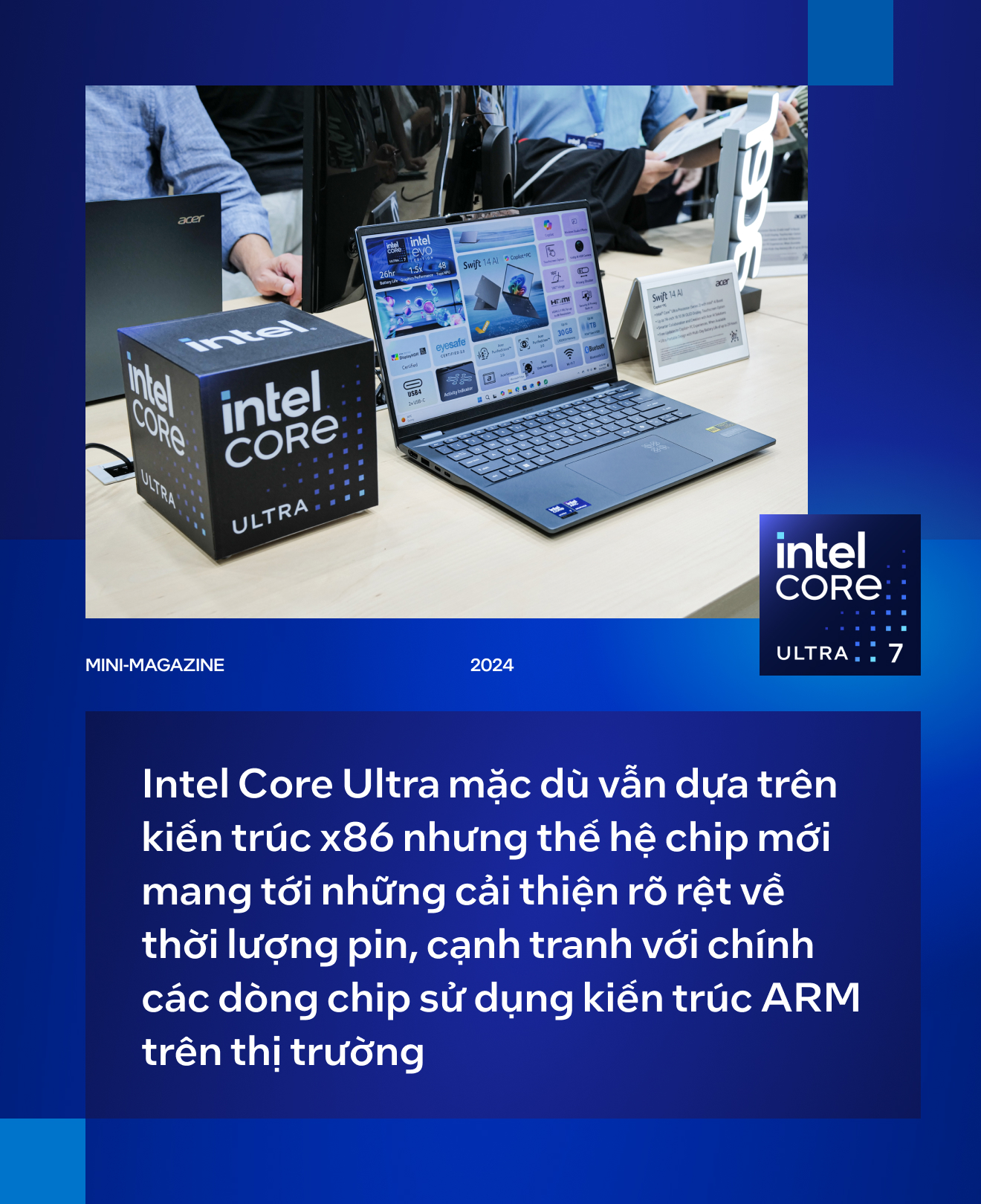
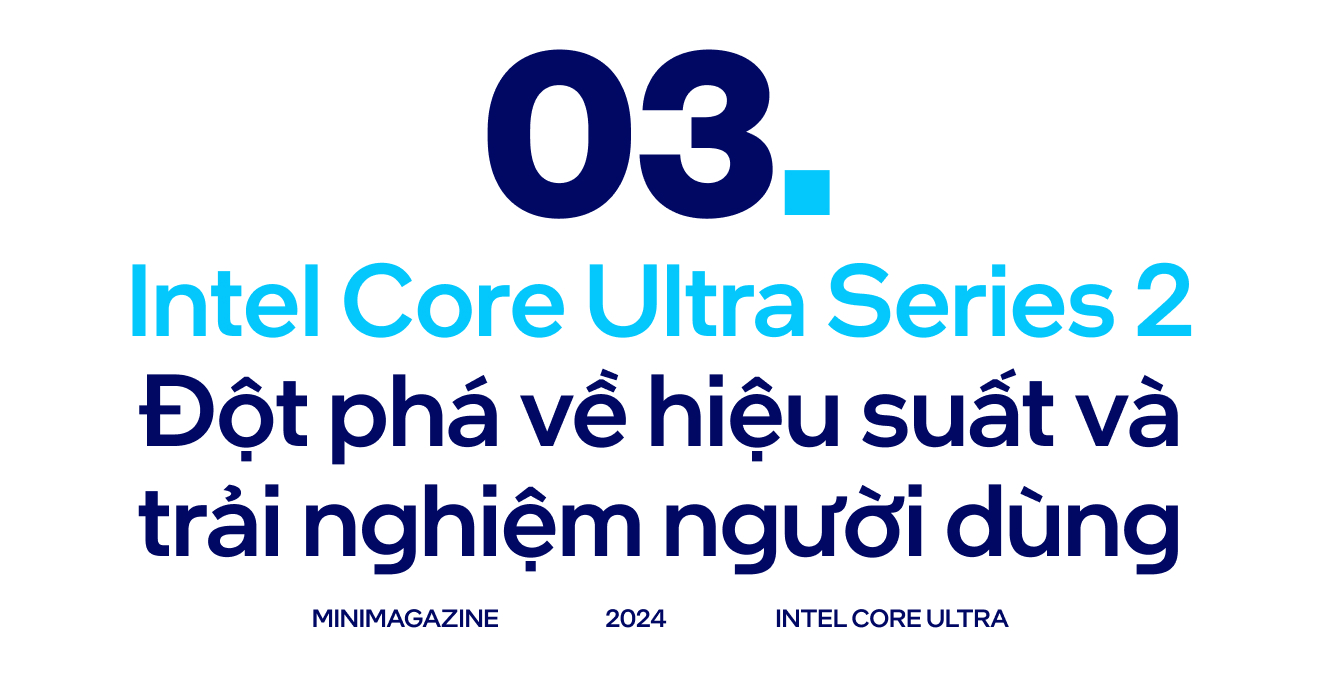
At IFA 2024, Intel unveiled its latest generation of processors—the Intel Core Ultra Series 2—reinforcing its commitment to continuous innovation. This new series integrates P-cores (Lion Cove) and E-cores (Skymont), along with cutting-edge AI processing capabilities, delivering up to 120 TOPS (across CPU, GPU, and NPU). This enables complex AI tasks and optimizes the overall working experience. Additionally, the Series 2 enhances graphics performance through the Xe2 graphics microarchitecture and Intel Arc GPU 140V, supporting hardware-accelerated ray tracing for superior graphics in 3D applications and gaming on thin and light devices.
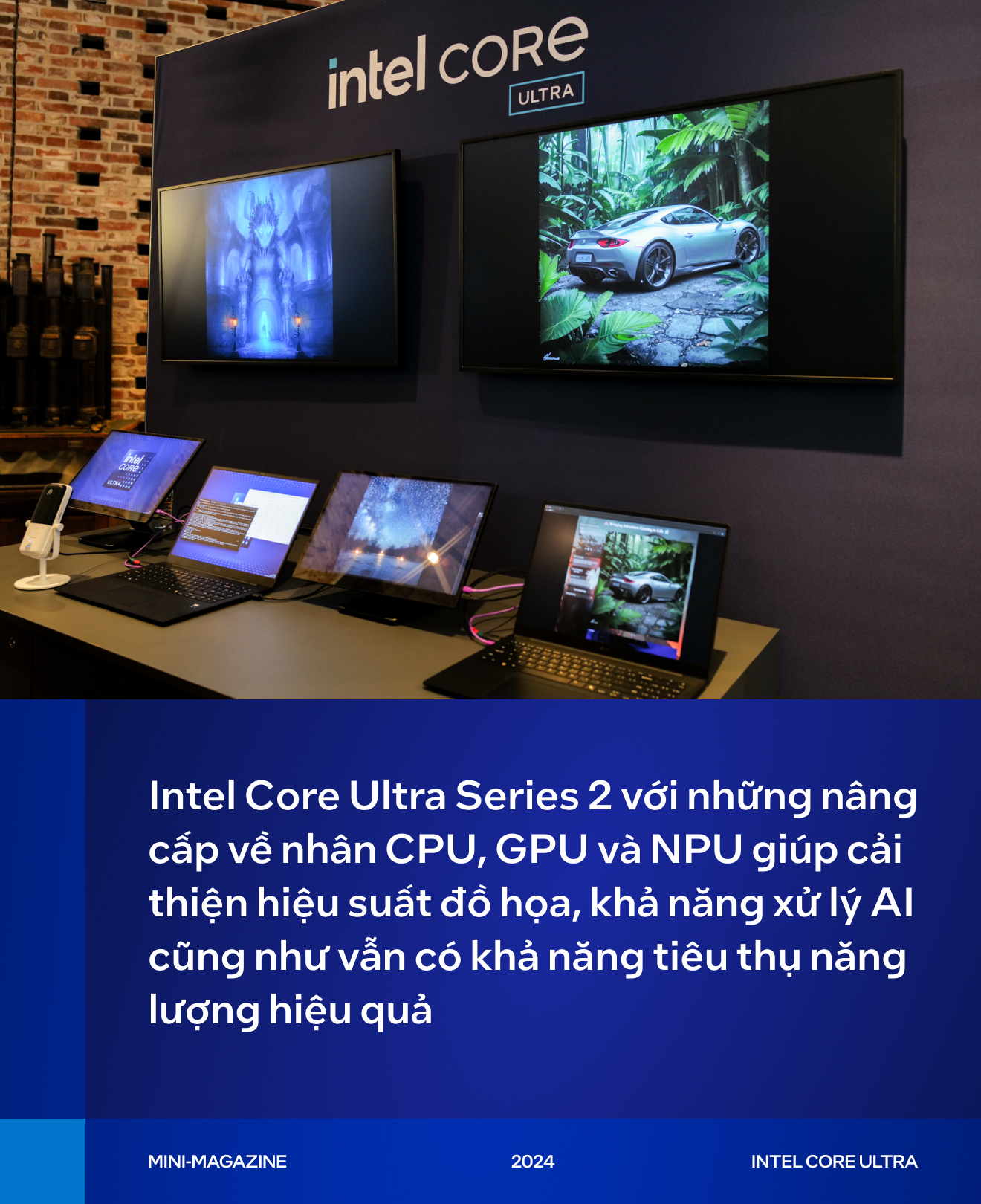
This cutting-edge chip series has already made its way into devices like the ASUS Zenbook S 14 (UX5406), a sleek and lightweight laptop that packs a punch with the powerful Core Ultra 7 258V processor.
According to technology experts, the ASUS Zenbook S 14, powered by the Intel Core Ultra Series 2, delivers an impressive battery life of up to 20 hours, outperforming its predecessors. Benchmark results reveal that the processor’s performance rivals that of higher-end multi-core competitors while maintaining a much lower power consumption (TDP of just 17W). This showcases the exceptional balance between performance and energy efficiency, making it ideal for mobile laptops that require extended battery life without compromising on performance.
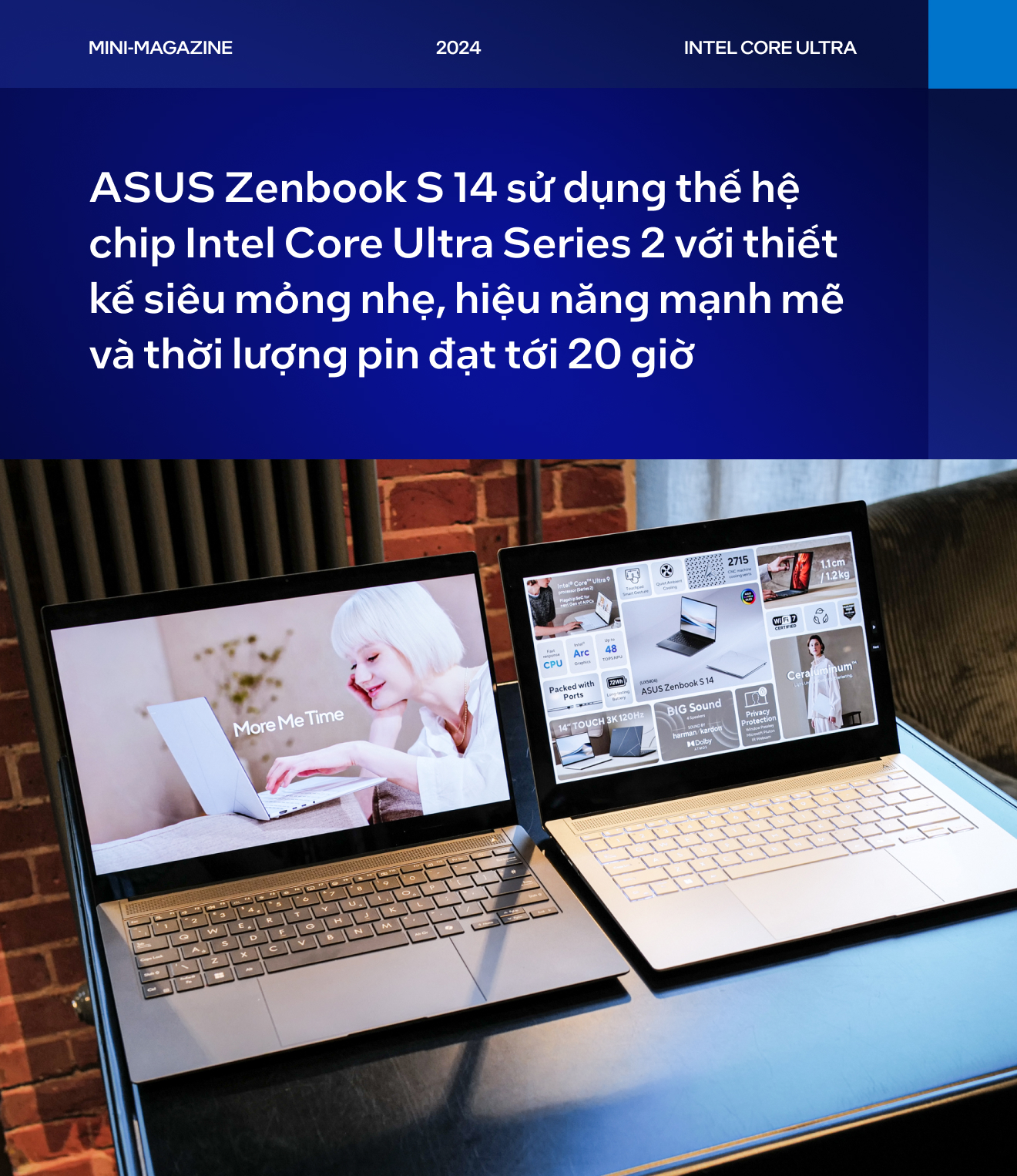
With these advancements, the Core Ultra Series 2 has proven that Intel can deliver a premium experience, not just in processing power but also in battery life and thermal management.
Another undeniable strength of Intel’s x86 processors is their software compatibility. The x86 architecture maintains high compatibility with a vast array of popular software and operating systems, providing tremendous convenience to users. While emulation solutions for ARM have improved, the allure of an x86 processor that offers superior performance and battery life remains strong.
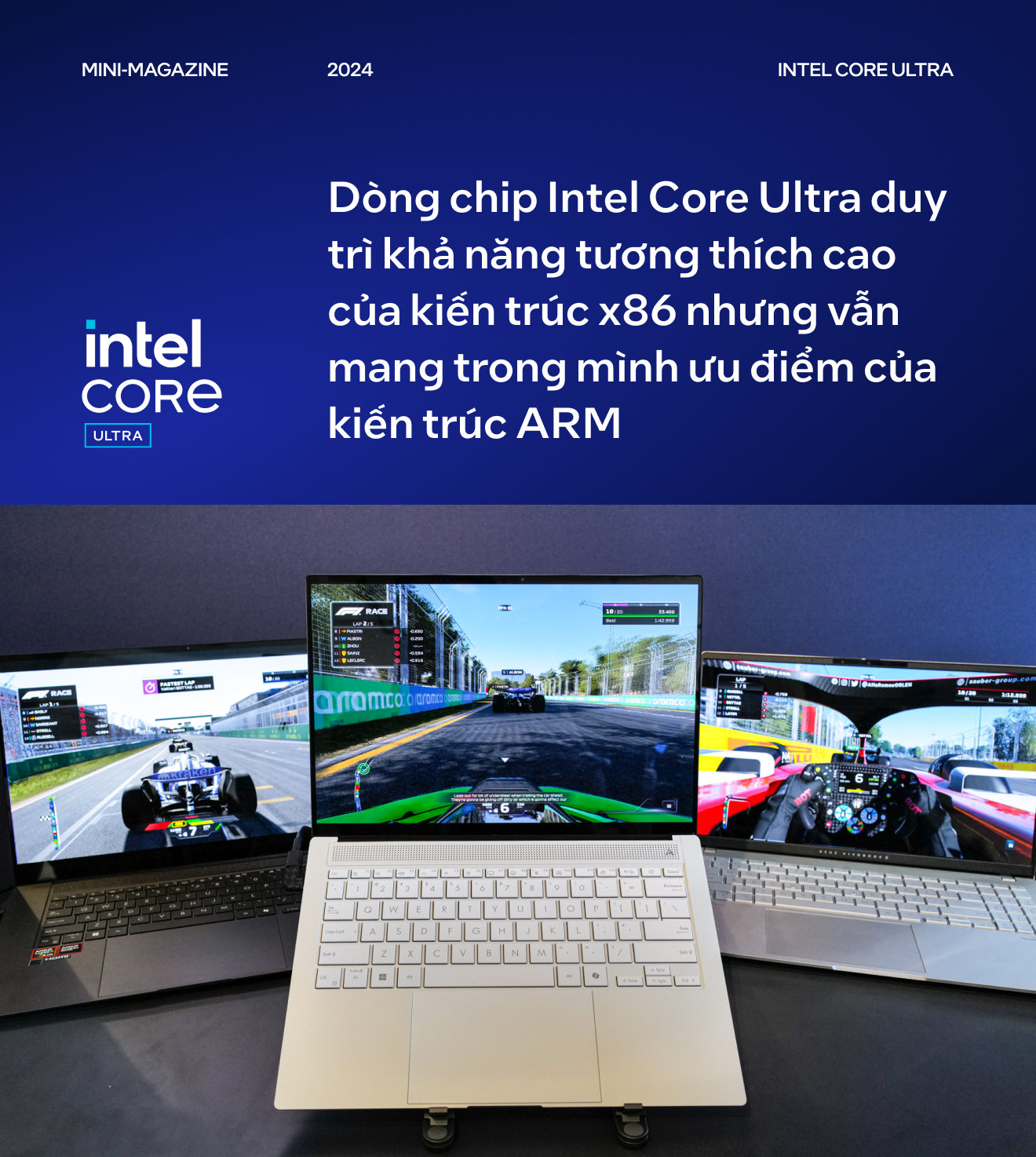
Moreover, the AI optimization capabilities of the Intel Core Ultra Series 2 enable users to leverage the latest technological advancements. Intel has not only enhanced AI performance but has also collaborated with over 100 software developers to offer more than 300 AI experiences, spanning applications for learning, working, and creating.

Intel’s journey from traditional x86 processors to the Core Ultra and Core Ultra Series 2 is a testament to its unwavering commitment to innovation. The company has successfully shattered the perception that x86 architecture lags behind its ARM-based competitors in terms of power efficiency.
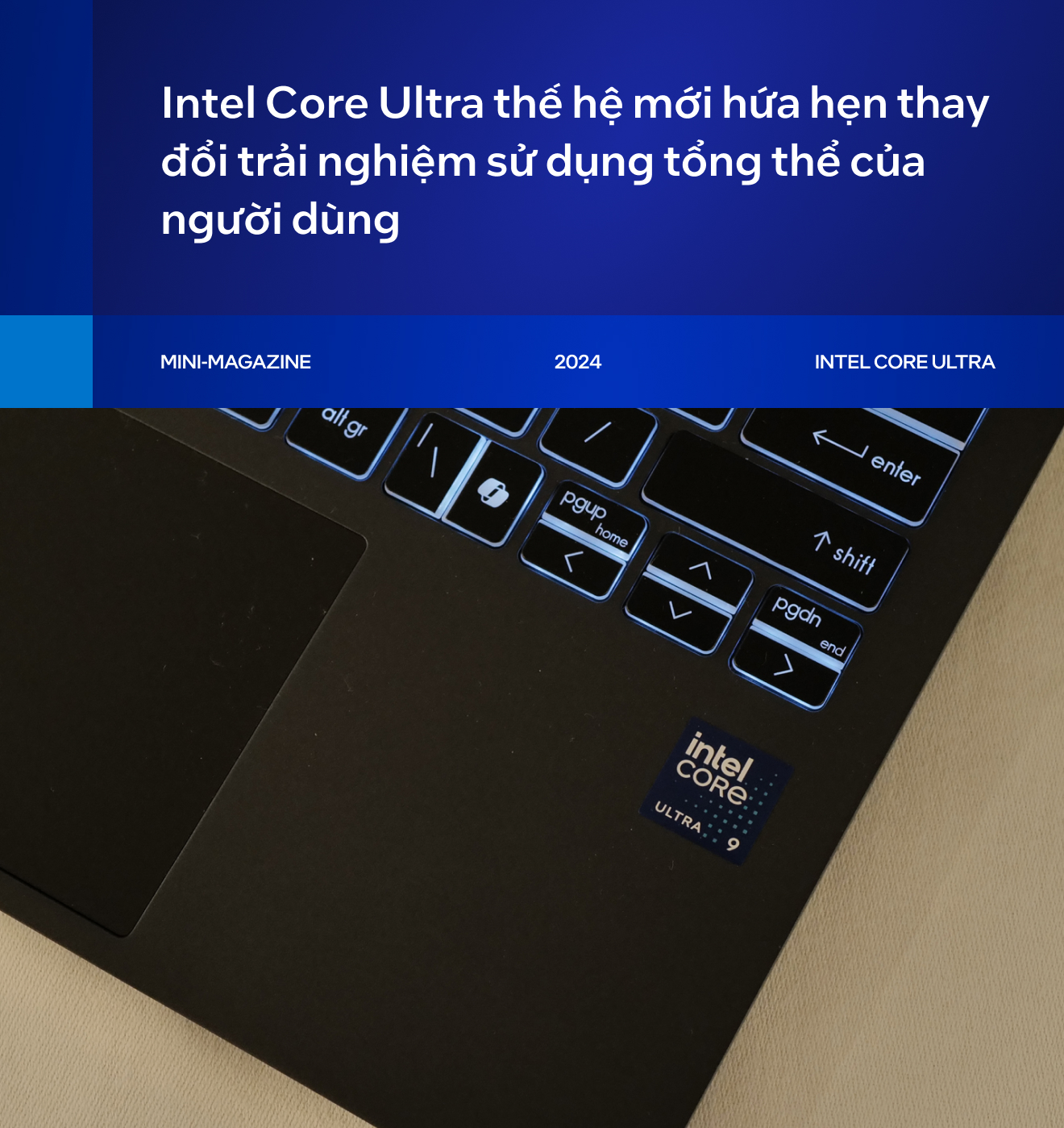
Devices like the ASUS Zenbook S 14, equipped with the Core Ultra Series 2, demonstrate that Intel can deliver a powerful laptop experience with extended battery life and efficient thermal management, meeting the evolving needs of modern users. The Core Ultra Series 2 is optimized for all types of users, from students and creatives to professionals, ensuring a seamless and satisfying computing experience.
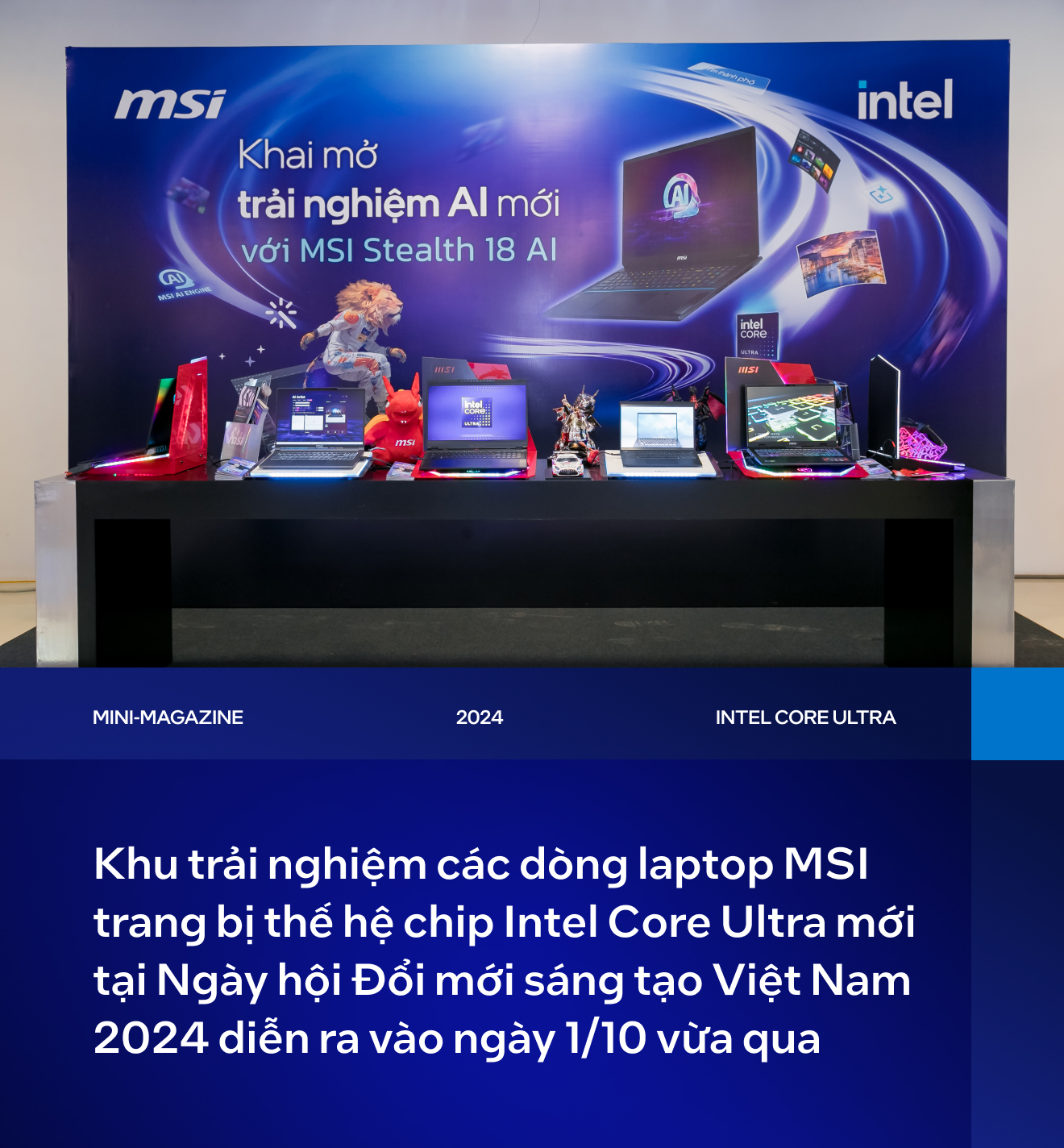
Recently, at the Better Choice Awards 2024 Gala, the MSI Stealth 18 AI Studio laptop, featuring the Intel Core Ultra chip, emerged as the top scorer in the “Creative Technology Device for Work” category. This recognition underscores the pivotal role of Intel’s processors and highlights the significant improvements the chip giant has brought to end-users.


